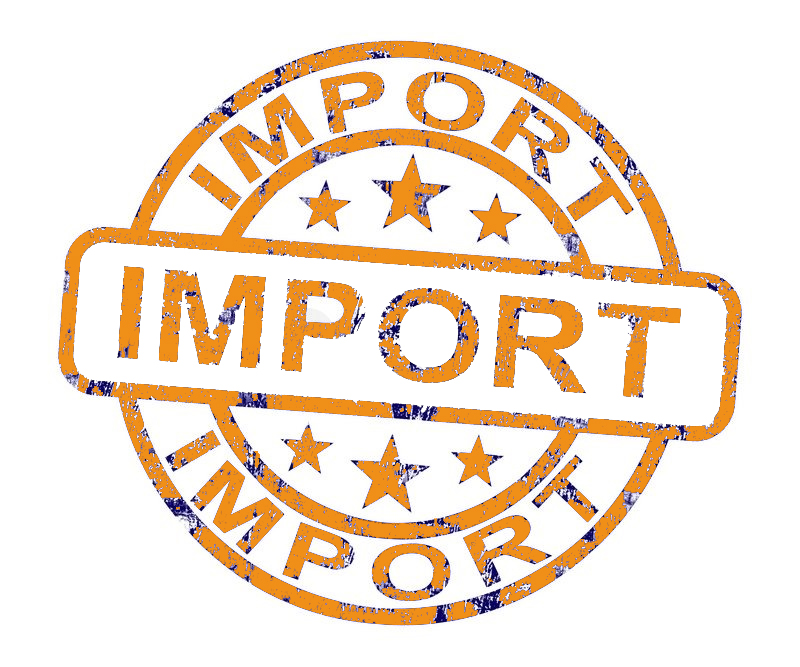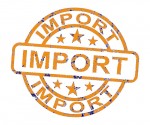Food importers have clear objectives: To successfully bring safe food into the country by clearing U.S. Customs and Border Protection, to avoid FDA detention and to conduct business competitively in the United States. Under the FSMA final rule on Foreign Supplier Verification Programs (FSVP), importers must ensure their food is as safe as if it were produced in the United States and that it is not adulterated or misbranded.
Compliance, of course, is of utmost importance when it comes to avoiding issues with the FDA. However, in a more realistic sense, the best way to stay out of trouble with FDA is to avoid two circumstances, advised Russell Statman, executive director at Registrar Corp. (the firm is a U.S. agent for about 15,000 foreign facilities)—being dishonest and not taking the requirements seriously.
“Once you fall into one of those boxes, you’ll never get out,” Statman said. “It’s important when dealing with FDA to remember that. It’s not a building; it’s people. They don’t want to stop your shipments; they want to facilitate trade.” If your company is honestly working toward and making an effort to follow the rules, “FDA will keep working with you until the cows come home,” he said.
Statman discussed practical information surrounding FSVP that importers should consider during the Food Safety Supply Chain Conference earlier this week. Although there is flexibility built into the FSVP rule (as there is with all seven FSMA rules), importers must follow the law. To start, every importer must have DUNS number (provided by Dun & Bradstreet), which is free of charge. However, this can be a challenge for foreign companies, particularly those in China, according to Statman, who also said there may be instances in which Dun & Bradstreet tries to charge a fee. “It’s supposed to be free and quick. If you have problems with Dun & Bradstreet, you want to let FDA know.” He offered key pieces of advice for the FSVP requirements:
- Hazard analysis. “You can’t rely on other people. If you’re producing food, do your own hazard analysis. Create a pamphlet that you can give to your customers. Then you don’t have to deal with all these requests—keep updating [the pamphlet], so it’s a living document. If you’re a foreign supplier and have a booklet, you’re steps ahead of your competition.”
- Approval and compliance status review of suppliers: Check their record with FDA to find out whether they have any warning letters or on import alert. “That doesn’t mean you can’t buy from them, it just means you have to investigate what the problem is,” said Statman, but added that a lot of U.S. companies will not buy from importers that are flagged with an alert. And in many cases, companies do not know that they’re on import alert, so visit FDA’s website frequently to make sure you’re not on the list. “FDA doesn’t tell you when you’re on import alert. You want to check [because] asking them might not be good enough.”
- Supplier verification activities: Verify that importers follow the entire rule.
- Corrective actions
- Periodic reassessment of FSVP
- Importer identification at entry (DUNS number)
- Recordkeeping: “In a very real, practical sense, your record stays with you,” said Statman. “If you’re an importer, you don’t want your shipment detained by FDA.” FDA uses a computer system called PREDICT that determines which entries they stop. The system comes up with a score for shipments that are at the highest risk. “Your PREDICT score if very important—some of these factors are secret, [and] some are public. The most important are in your control—your record and the importers record,” he added. “Before you send your first shipment for a new product, make sure everything is correct (i.e., registration, labeling). It’s worth the time.”




Ms. Fontanazza
Thank you for this post which also hints at corporate culture’s role in addressing regulatory compliance. After all, if an organization’s culture supports dishonesty and a cavalier approach to regulatory obligations that will no doubt lead to trouble.
While appreciating your summary of Mr. Statman’s comments, I was left a little confused by the DUNs discussion. After all, the FSVP Importer is and can only be a U.S. entity so within context of food importers it seems a little irrelevant that foreign food processors might have issues obtaining a DUNs number.
Under U.S. customs regulations, foreign companies can operate as the importer of record ( aka “customs importer”) however FDA regulations ( FSMA) require that the FSVP Importer be a “U.S. person” – and for purposes of FSVP Importer identification it is this “U.S. person” who must be identified at time of customs entry by a “Unique Facility Identifier” and at this time FDA is allowing folks to use DUNs numbers to comply with this requirement.
Mentioning the challenges foreign entities are having in obtaining a DUNs number within the context of the FSVP Rule comments might leave one with the impression that foreign entities can operate as the FSVP Importer which is not the case.